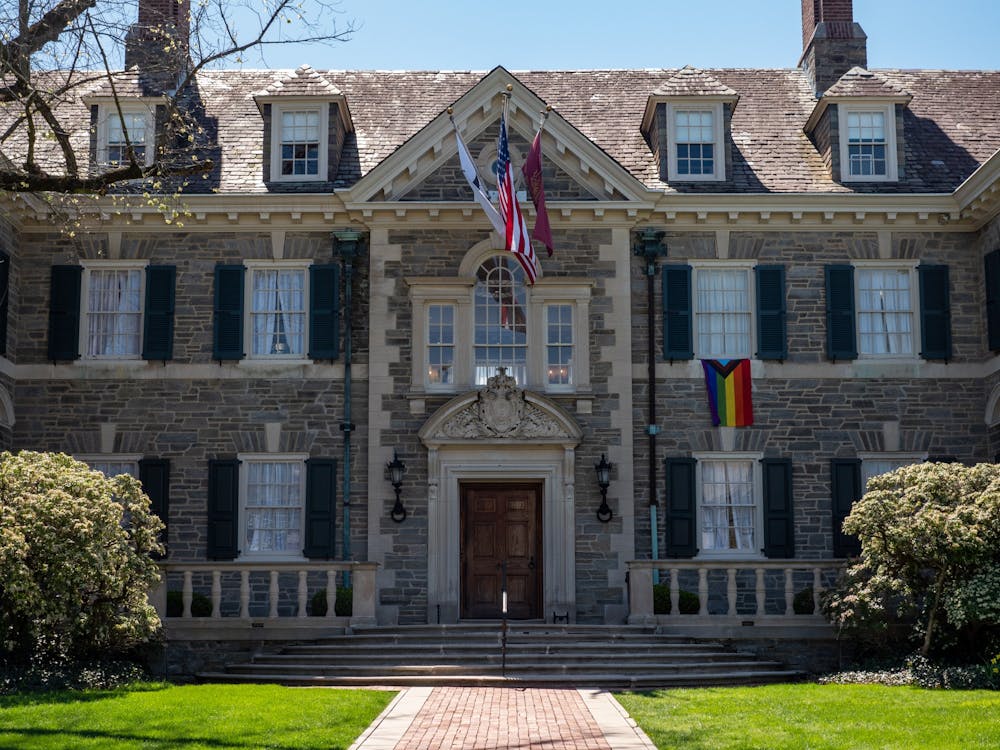What should I do with my time here? This question sometimes feels like a specter haunting me while I try to make my way through campus. Much of the time, the answer is obvious: try to keep up in the fast-paced academic environment that Princeton prides itself on, which is a tall order in and of itself. Much ink has been spilled over whether or not Princeton’s academic environment is conducive to a balanced and healthy existence. But what about the rest of our time? Overlooked in the past semesters’ mental health discourse is the toll of our obsessively competitive culture. Princeton’s network of competitive systems feels natural to us, but it is worth considering: is striving to one-up each other truly the best use of our limited time on campus?
Princeton’s culture encourages unhealthy competition. We can see this in the number of metrics we have to compare ourselves to each other and the number of systems that are run on a competitive basis. We compete for internship offers and study abroad acceptances, many of which are provided through popular internal programs that foster competition only against other Princeton students. We are even competitive about our social lives, fighting for entry into eating clubs. Because eating clubs have a purely social purpose, they highlight our preoccupation with status and prestige the most and are worth examining further.
Take the example of Charter Club which, worried about declining membership rates, considered switching to a bicker system during the Spring 2020 semester, but eventually chose to move to a selective sign-in process. As a result of its flirtation with bicker and its rise in perceived prestige, Charter went from being one of the least popular clubs to one of the most. During the time when Charter was considering the change, one member of the Class of 2022 interviewed by the ‘Prince’ explained, “People want to prove themselves; people want to be social; people want to feel like they’re elite.” By playing into our students’ bias towards elitism, Charter has effectively leveraged prestige into a weapon, allowing them to sell themselves as a desirable status symbol to prospective members.
This, however, is not intended to single out Charter for its success; it is not the first eating club to flirt with exclusivity, and it likely will not be the last. In 2003, as part of a last-ditch effort to revive the floundering Campus Club, the club’s officers decided to reinstitute bicker in the hope that making the club more exclusive would attract new members. The idea that a club can grow and become popular only by turning prospective members away is inherently toxic to fostering a positive and uplifting community. That this bet works implies that prospective members are largely motivated by the feeling that they beat someone out for their spot – that there can be no victory without an opponent to be vanquished.
This infatuation with competition pervades nearly every aspect of life on campus. Almost any student group one might consider joining has some process that pits applicants against one another. Everything, ranging from music to debate to sports, has some form of audition or try-out, affirming the validity of their club through stacks of rejection letters and reinforcing the notion that meaning can be found through external validation alone. This cultural belief is so deeply ingrained that it can imperil student groups existing only for the enjoyment of their members. The president of one non-selective club half-jokingly said to me that she was considering hosting sham auditions to revive interest in her group through the appearance of exclusivity. That such an idea is even worth considering reveals something fundamentally rotten in how our campus community is structured.
There is a certain irony to criticizing prestige-chasing at the top-ranked school in the nation (for 12 years running, if you ask U.S. News & World Report). Of course, a school that has topped the list as the school to strive for will select people motivated by recognition. As a result, it’s hardly surprising that the pursuit of excellence will continue when such high achievers arrive at college. While there will always be competition at Princeton, I also hope that each one of us has a unique vision — for ourselves, what we want to do, and what a fulfilling Princeton career looks like — beyond simply beating other students. A Princeton where prestige is not the sole motivator of campus life would be a better campus for us all. It’s a campus where students are more free to think about how they want to spend their time, a place with fewer transactional friendships, and a space for quirky extracurriculars done for their own sake. Rather than getting caught up in the game of prestige chasing, we should embrace the opportunity that Princeton offers us to make meaningful connections and carve out our own place at Old Nass.
Thomas Buckley is a contributing columnist at the Daily Princetonian. In his spare time, he does all sorts of nonsense. He can be reached at thomas.buckley@princeton.edu.








